Fight For Your Right: The Battle Over Music Censorship
A question of boundaries lays at the heart of music censorship, but artists have always pushed back, fighting for the freedom to express themselves.
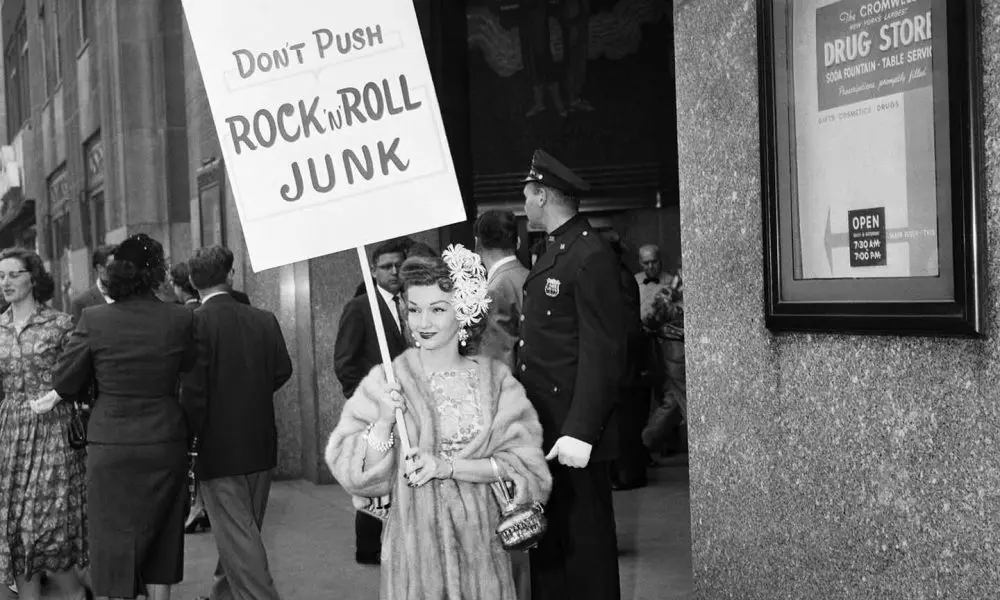
Unlikely as this now may seem, there was a time, not long ago, when you couldn’t say anything naughty on a record. In fact, you couldn’t even imply anything naughty unless you were especially clever about it. Once upon a time, music censorship was so severe that even using the word “damn” in a song would invite trouble. Just ask The Kingston Trio, who didn’t give one about a “Greenback a-dollar” and had to cover the word with a loud guitar strum. Even a thing of beauty such as The Beach Boys’ “God Only Knows” was banned by many radio stations, with the Lord’s name being too sacred for use in a mere pop song.
Music censorship has a long and colorful history, but this act of repression often resulted in a creative resurgence.
What was actually on people’s minds, of course, was a different matter, and you have to look into the blues tradition to hear the unvarnished truth. Lucille Bogan’s 1935 recording of ”Shave ’Em Dry” still beats just about anything for pure bawdiness, and its claims of female sexual power were well ahead of their time.
Remember what that dead man did in The Rolling Stones’ “Start Me Up”? Bogan says she’s the one that made him do it. But nobody could put that on a record in the 30s. (Fortunately, someone had the foresight to roll tape so it could be issued on CD decades later.) Ditto a performance the likes of Jelly Roll Morton’s “Murder Ballad,” a tale so long and depraved that it takes up seven sides of an acetate. It didn’t stand a chance of getting released during an era when music censorship was at its height, but it does give you a taste of the kind of talk Morton heard while working in the Storyville brothels of New Orleans’ red-light district.
Double entendres and the blues record
As long as you didn’t say the words, you could sneak any number of double entendres onto a classic blues record. It didn’t take Freud to figure out what John Lee Hooker’s “Crawlin’ King Snake” or Bessie Smith’s “I Need a Little Sugar in My Bowl” were all about.
Sometimes those songs were playful, like Dave Bartholomew’s “My Ding-A-Ling,” the same song that Chuck Berry had a hit within 1972 (though Chuck always claimed he wrote it). But the filthiest double entendre to hit teenage ears in the early rock’n’roll era had to be the one in Big Joe Turner’s “Shake, Rattle And Roll,” covered by Bill Haley and then Elvis Presley. The censors who kept Elvis from shaking his hips on television would have really flipped out if they knew their kids owned a record featuring the lyric “I’m like a one-eyed cat peepin’ in a seafood store/I can look at you till you ain’t no child no more”. The phallic reference is eyebrow-raising enough, but the second line practically admits that the girl was underage.
The 60s and 70s
Music censorship relaxed a little bit in the 60s and 70s, as long as you didn’t say things too blatantly. A hit single about delaying sex till marriage to avoid pregnancy? Sure, if you could say it as artfully as The Supremes did in “Love Child.” An honest-to-God Top 20 hit about the sex and drug predilections of the Andy Warhol crowd? Thank you, Lou Reed, for “Walk On The Wild Side.”
Songs with erotic noises are an art in themselves. Jane Birkin and Serge Gainsbourg’s ‘Je T’Aime… Moi Non Plus’ proved too hot for America in 1969, but The Chakachas ‘Jungle Fever’ broke the taboo just a year later, as did “Pillow Talk” by Sylvia Robinson, the same woman who’d make history as the founder and owner of Sugar Hill Records.
For the most part, the seven dirtiest words (the ones George Carlin claimed you couldn’t say on television) still weren’t allowed on disc until the end of the 60s. The word “f__k” never made vinyl until David Peel & The Lower East Side’s 1968 hippie classic “Up Against the Wall.” Not that an album called Have A Marijuana was going to get much airplay anyway. But within a year, the expletive in question appeared on a number of mainstream albums, including the Woodstock soundtrack, Jefferson Airplane’s Volunteers and The Who’s Live At Leeds, where it was widely overlooked since Roger Daltrey’s bit of London slang on “Young Man’s Blues” was undetected by American ears. Then, of course, Carlin’s full routine hit vinyl in 1972.
The art of innuendo
That same year, The Rolling Stones stomped all over the taboo in “Star Star.” While not the first rock song to include the F-word, it certainly featured it the most times. But, perversely enough, other lines in the song made their record label nervous: the line about “giving head to Steve McQueen” nearly got cut before McQueen himself gave it the go-ahead, while the line “I bet you keep your p___y clean” still fell afoul of music censorship in the US, where it was covered up by a Jagger overdub that has since been removed from all CD versions.
Meanwhile, the art of innuendo was alive and well, and some of the best examples can be found in reggae. The UK reggae and ska artist Judge Dread holds the Guinness World Record for the most songs ever banned by the BBC – and the organization even reflexively banned him when he released a clean song. Even roots reggae legend Max Romeo’s salacious “Wet Dream” got played a couple of times on air before someone at the BBC apparently listened to the record. The song still became an underground classic, with Elvis Costello even playing it live a couple of times. The chorus of “Lie down girl, let me push it up” didn’t leave much room for doubt, but Romeo insisted that the song was completely innocent, claiming he had a “wet dream” because the roof over his bed was leaking and he was asking his wife for something to push up to stop the leak.
With the disco era just around the corner, pop music’s libido was about to run wild. Pop hits were already loosening up by then and few songs were franker than 1970’s “Morning Much Better” by Ten Wheel Drive, in which singer Genya Ravan claims she’s too damn busy to do the wild thing at night, but “could probably function for a little conjunction” in the AM. That was too upfront to be anything but a minor hit, but flash-forward six years (and a few hours in the day) to Starland Vocal Band’s “Afternoon Delight” and you’ll find not just a chart-topper, but a song that earned the wholesome-looking quartet its own TV series.
All bets were off
All bets were off by the time Donna Summer put out “Love To Love You Baby” in 1975, playing upon the same suggestive noises that Robinson and The Chakachas had done earlier, but with far more fervor and for a much longer time (the album version was 17 ecstatic minutes). Summer herself became a born-again Christian in later years and refused to perform the song, before acquiescing later still and singing it without the erotic overtures. Meanwhile, her Casablanca labelmates Village People were 100 percent innuendo; that was the joke. You can peruse their entire catalog and you won’t find a single upfront reference to sexuality, just a lot of coy talk about how much fun the YMCA is and what great adventures can be had in the Navy.
From there it’s a short jump to Grace Jones’ “Pull Up To The Bumper.” By specifically referencing a sexual position – which it sure sounds like she’s doing – Jones pushed the music censorship limits about as far as they’d go in 1981. She also pays the ultimate compliment by referring to the guy’s equipment as a “long black limousine” on the same track. Not every graphic song was quite so sex-positive. Marianne Faithfull’s “Why D’Ya Do It” was shocking in 1980 – and still is – not so much for the strong language as for its unflinching look at sexual betrayal and jealousy.
Getting political
The most famously controversial songs of the late 70s weren’t even about sex. There wasn’t a single swear word in Sex Pistols’ “God Save The Queen,” but the BBC was sufficiently outraged that they never even said the title of the record. The Pistols’ appropriation of the title phrase was at least as controversial as the song itself. Chain stores grudgingly sold the single, but if you walked into a chain like Boots, where the week’s top singles were displayed at the counter, you’d see a big blank where “God Save The Queen” was supposed to be listed. Nevertheless, the song topped the NME charts in 1977, coinciding with Queen Elizabeth’s Silver Jubilee; the official charts, however, ranked it at No.2, leading to accusations that the listings had been rigged. (Political content and a single naughty word had also gotten the previous “Anarchy In The UK” banned, but imagine the BBC’s frustration when the next single was “Pretty Vacant” and they couldn’t come up with a good reason to ban it.)
Music censorship had lost the war
By the 80s it seemed that the powers behind music censorship had lost the war. Songs with strong language were all over FM radio (The Who again, with ”Who Are You”); longtime boundary-breaker Frank Zappa had his first (and last) Top 40 single with the family-friendly “Valley Girl”; and the twin revolutions of hip-hop and metal were knocking down whatever lyrical restrictions were left.
Then along came the Parents Music Resource Center (PMRC), whose crusade for music censorship was in some ways the best thing to happen to musical freedom in the 80s. You might call the former First Lady Tipper Gore and her crew the definitive mix of noble intentions and utterly ham-fisted execution. Let’s give them the benefit of the doubt and assume that they really wanted to protect teenagers’ ears from potentially harmful messages. But their aggressive methods (including bankrupting Dead Kennedys’ leader Jello Biafra over a museum-quality piece of HR Giger art), and their clueless choice of targets (yes, Twisted Sister’s “Under The Blade” really was about surgery) doomed them to failure, as did a nation of teens who figured they could protect themselves just fine, thank you.
The inevitable result was a career boost for everyone the PMRC targeted. Ozzy Osbourne was in the headlines again, the shock-metal band WASP extended its 15 minutes of fame for a few hours, and the popular music community now had something to rally around. Even a band like Styx, who weren’t controversial in their wildest dreams, came up with an anti-PMRC concept album, Kilroy Was Here.
The Filthy Fifteen
The most pointed response to the PMRC would have to be a tie between Zappa’s “Porn Wars,” a dense collage of doctored tapes from the hearings, or Todd Rundgren’s “Jesse,” whose three verses gave strongly-worded kiss-offs to Jesse Helms, Tipper Gore, and the Pope. Ultimately falling foul of the music censorship it fought against, ‘Jesse’ was removed from Rundgren’s 2nd Wind album and still hasn’t been released, but his fans came to know and love it from live tapes that got passed around. There were probably dozens of anti-Tipper songs all told, and the trend outlasted the PMRC itself. Eminem even made a dig at Tipper in 2002’s “White America,” years after she’d hung up her rock’n’roll-censor shoes.
The PMRC’s original 1985 list of the “Filthy Fifteen” objectionable songs now reads like a perfect soundtrack to the 80s. You’ve got metal, pop songs from both black and white artists, and Prince and two of his proteges (Sheena Easton and Vanity) sitting right alongside Def Leppard and Madonna. Probably a hipper playlist than most radio stations were offering at the time, the list even put “Trashed” – a track from Born Again, Black Sabbath’s one album with Ian Gillan singing – back in rotation.
Not for nothing, numerous magazines, including Rolling Stone, in 2015 have run nostalgic “Where Are They Now?” stories about the 15 artists on the list. Oddly enough, the PMRC completely missed Frankie Goes To Hollywood’s “Relax,” which set off a small firestorm in England – as was surely intended. It remains the greatest pop song ever written about delaying orgasm, though Sleater-Kinney’s ‘Oh!’ would rate honorable mention.
Every parent’s nightmare
Music censorship got uglier as the 90s wore on. The hip-hop group 2 Live Crew may have been every parent’s nightmare, but they did have a “Tipper sticker” on their notorious album As Nasty As They Wanna Be, and the PMRC always insisted that the parental-advisory warning was all they asked for in response to their crusade for music censorship. But that didn’t stop authorities in Florida from arresting the owner of a store that sold the album, and, eventually, the group itself. Both convictions were overturned, and As Nasty As They Wanna Be sold two million copies, but for a time the censorship wars weren’t so funny anymore. What was funny was your local indie-rock band’s attempts to cover the single “Me So Horny” in solidarity – as many did at the time.
By the 90s, the Wal-Mart chain store had replaced the PMRC as America’s moral arbiter, refusing to stock albums if the content didn’t meet their criteria. Nirvana changed the name of the In Utero track “Rape Me” to the nonsensical “Waif Me,” leaving the song title partially intact. More notably, Wal-Mart banned Sheryl Crow’s self-titled second album because of her song “Love Is A Good Thing,” which mentioned Wal-Mart and, specifically, how easy it was to buy guns there. This perhaps was an ominous hint that anti-corporate sentiment was about to replace sex and drugs as the real taboo.
In the wake of 9/11
The most famous example of music censorship in the 00s had to be the list of 150 songs that Clear Channel sent to all its radio stations in the wake of 9/11. To be fair, the songs weren’t literally banned; the memo just suggested that DJs “might not want to play” the song. Here again, the intentions were probably good, but it looked like a case of corporate overreach, seemingly targeting any song that mentioned New York, had the slightest war imagery, or made any kind of political statement. Besides, many of the songs included – among them John Lennon’s “Imagine,” The Youngbloods’ “Get Together” and even Louis Armstrong’s “What A Wonderful World” – were precisely the kind of sentiments the world needed at the time.
But, as with the PMRC, this latest attempt at music censorship inadvertently did the world a favor. For many, perusing this notorious list and seeing entries such as AC/DC’s “Shot Down In Flames” (clearly a song about striking out romantically) was about the only source of comic relief we had in those dark days.
These days it’s harder to tell if there are any taboos left. The personal life of an artist may be the only remaining one. Gary Glitter’s ‘Rock & Roll Part 2’ is completely unobjectionable as a record, but you’ll probably never hear it at a football game again.
Are there any taboos left?
Otherwise, it appears to be a free-for-all, and even the brashest rappers are seldom under fire the way NWA and 2 Live Crew once were. Eminem may have painted himself as an underdog in 2000’s “The Way I Am,” bragging how “radio won’t even play my jam”, but he released that shortly before playing the Grammy Awards with Elton John, starring in a feature film (8 Mile) and generally being the toast of the industry.
As it stands, there are at least four songs that have made the Top 10 in recent years – Cardi B’s “I Like It,” XXXTentacion’s “Sad!,” Post Malone’s “Psycho” and Drake’s “Nice For What”– whose lyrics would make them a target in another round of music censorship. At least it’s easier these days to create a digitally cleaned-up version of a song for radio – and probably more necessary too. Remember that clumsy bleep in Johnny Cash’s “A Boy Named Sue?”
We can’t close without naming our picks for the two hottest songs ever to get past the censors; one for the boys and one for the girls: Marvin Gaye’s “Let’s Get It On” and Madonna’s “Justify My Love.” Lyrically, there are more daring songs around, but the production of both – and especially the vocal performances – give them sexually-charged atmosphere that words alone can’t convey. Both songs are, above all, about desire. Fortunately, you still can’t censor that.
Looking for more? Discover the most controversial album covers of all time.


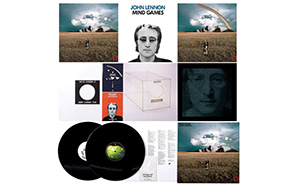
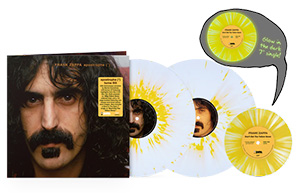

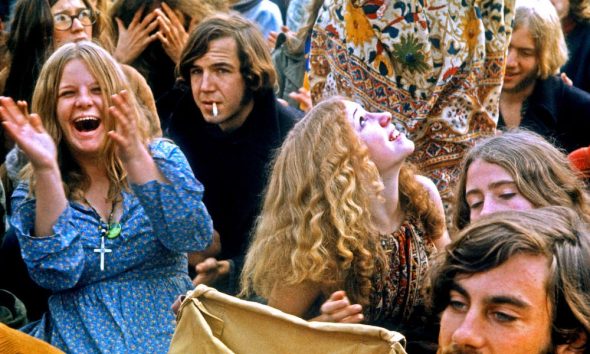
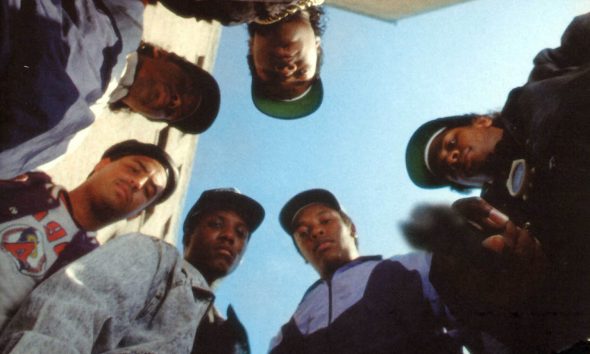

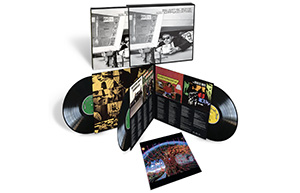

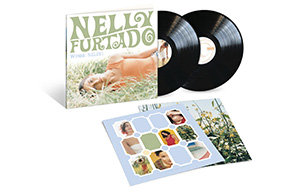
John Sposato
August 18, 2018 at 2:22 pm
You forgot to put Mary Whitehouse, who protested against My Dingaling among other things.
Grace Jones lived in my area before she was famous.
Paulie
August 18, 2018 at 2:49 pm
Tipper Gore was never “First Lady,” though she certainly acted as if she believed she were. Her then-husband was the VP, which made her Second Lady. Just saying.
Lance
August 18, 2018 at 8:33 pm
How could you omit The Vapours Turning Japanese?
Robert Henson
August 19, 2018 at 9:56 am
All good tunes and worthy of hit status, didn’t Bob Dylan write a few of his own. I think censorship stretches a lot further than pop music today not least Facebook and Twitter.
B Chaudhuri
August 19, 2018 at 11:07 am
During WWII my mother bought the Andrews Sisters ‘Rum and Coca-Cola’ just before it was banned. It referred to ‘both mother and daughter working for the Yankee dollar’
Lepter
August 19, 2018 at 1:41 pm
I’m totally in favour of music cesorship. Look at the filth filled mess the world wallows in now. All from the last 70 years in which music has gone from a pleasant melodie to the smut filled crap out everywere. Movies are the same. We have created our own nightmare.
bill joe the stalker
November 13, 2018 at 3:07 pm
I love fortnite its my favorite game get off the bs and play fortnite
Ant_858
November 13, 2018 at 3:07 pm
I’m totally not in favor of music censorship. Why should the people who like the kind of music that other people try to ban or censor not be able to listen to it because other people don’t like it? If you don’t like the song then don’t listen to it. Let the others who like the music listen to theirs and the others listen to the music they like. No one should be held back from the music they make for their fans. Everyone is entitled to their opinion on any topic. I think the hardest part is that people have an opinion. Some people like a song and others think it is inappropriate and thus comes to the question of who’s right? I’d say just listen to your music that you like and leave the other ones be. No one is entitled to look at everything or listen to it too. It isn’t difficult.
bill joe the stalker
November 13, 2018 at 3:03 pm
i don’t care about this go get a life
bill joe the stalker
November 13, 2018 at 3:13 pm
why am i in school, school is for nerds and im not a nerd wtf is this shit
bill joe the stalker
November 13, 2018 at 3:16 pm
i hate school why am i here
bngd
March 22, 2021 at 5:52 pm
jajajajj
bill joe the stalker
November 13, 2018 at 3:17 pm
i need a daddy
Maksim Ivanov
February 15, 2021 at 6:59 pm
What an irony that the half of the videos in this article are marked as “unavailable”…
osososo
December 22, 2023 at 7:00 pm
pogues Fairytale of Newyork we still have censorship.